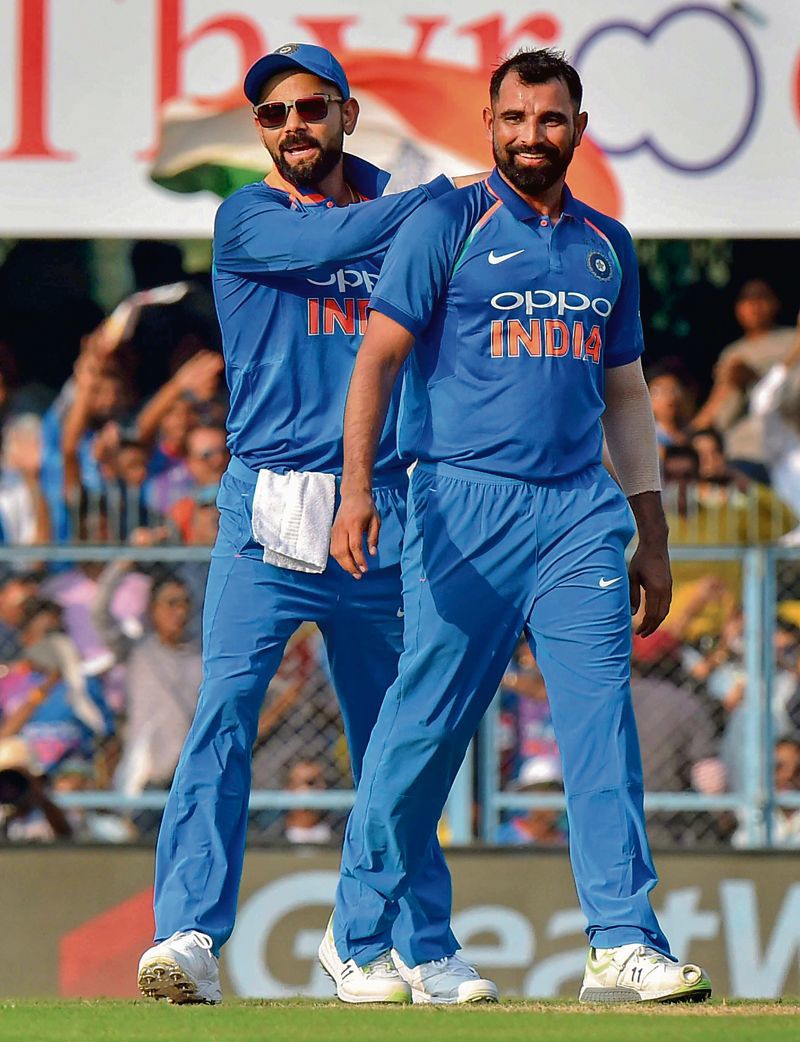What Kohli can teach India
The night India won the T20 World Cup, the night Virat Kohli retired from T20Is, Mohammed Shami remembered his old teammate. He put up photographs of himself with Kohli on social media, starting with one that was both bleak and hopeful; fire and gravel and headlines and words that burned his heart, from 2021, when he received horrid online abuse after the defeat to Pakistan in the T20 World Cup.
Words wound — anonymous words such as thrown by ‘fans’ wound terribly, for players like Shami have no way to confront their tormentors. The tumult of the bigots is amplified by social media, which helps them deliver their message to the victim. The asymmetry of power is overwhelming — it’s one against a mad horde, willing to lynch with words.
And Kohli stands between the mob and their victim.
After India lost to Pakistan, by 10 wickets, in Dubai in October 2021, Shami was called a traitor; he was told to go to Pakistan, but no other player was told to migrate. It was only Shami, for his religion made him an outsider — by the bigots who wish to reimagine India the way Pakistan was conceived, by feelings of separatism and religious chauvinism.
Kohli tore apart the bigots during a press conference — after the BCCI media handler advised journalists that ‘only cricketing’ questions would be taken and then tried to muzzle a question related to religion. “To me, attacking someone over their religion is the most, I would say, pathetic thing that a human being can do,” Kohli said. “I personally have never ever even thought of discriminating (against) anyone over their religion. That is a very sacred and personal thing to every human being and that should be left there.”
Words that our politicians, seeking to impose religious and cultural uniformity in a beautifully diverse country, would do well to heed and repeat.
Dravid and T20s
Rahul Dravid walks away into the sunset in a blaze of glory, lionised by all for coaching India’s T20 team to the World Cup title.
The irony in this is inescapable — his greatest triumph as coach is in the format he thought very little of!
Dravid is arguably India’s greatest Test batsman, a classicist who personified cricket’s hoariest traditions — a straight bat, a flinty mind, a body that could remain at the crease for six sessions straight, on pitches that changed character every hour.
He’s a man who played only one T20I and thought the format was so paltry that he did not want the honour of captaining India in the inaugural T20 World Cup in 2007 — he didn’t even play in that tournament! What’s more, the then captain, Dravid persuaded Sourav Ganguly and Sachin Tendulkar to not be part of the team, the reins of which were handed over to MS Dhoni.
India won the T20 World Cup last month by beating South Africa by seven runs — a margin so paltry, it could well have been a defeat if the opponent had a bit of luck. T20 is a format of luck and chance and six different teams have won the title in the nine T20 World Cup tournaments — consistency is impossible, and Afghanistan can beat Australia and the US amateurs can beat Pakistan. But the format has money and glamour, tumult and noise, and that is very attractive.
Dravid is, however, a self-effacing, modest man and, surely, he knows that he’s been assigned greater honour than he himself would accord to a coach of a T20 team; he would much rather have won the World Test Championships final against Australia in 2023.
He’s also being idolised as a faultless man and leader, for it seems to have been forgotten that he presided over a divided team made insecure by coach Greg Chappell, with whom he was aligned more than his teammates.
“It’s time Dravid exerted himself and told Chappell that in future, he will call the shots,” Ravi Shastri said in 2006. “Dravid should stand up and say that he is the boss and that he controls matters once he crosses the boundary line.”
“Because of Greg Chappell, the dressing room was divided,” Ganguly said in 2011. “Rahul Dravid is such type of a person who wants that everything goes smoothly. He knew that things were going wrong, but he had no courage to revolt and tell him (Chappell) that he was doing wrong.”
Nice guy or a snowflake? Well, possibly the greatest Indian Test batsman, for sure.









